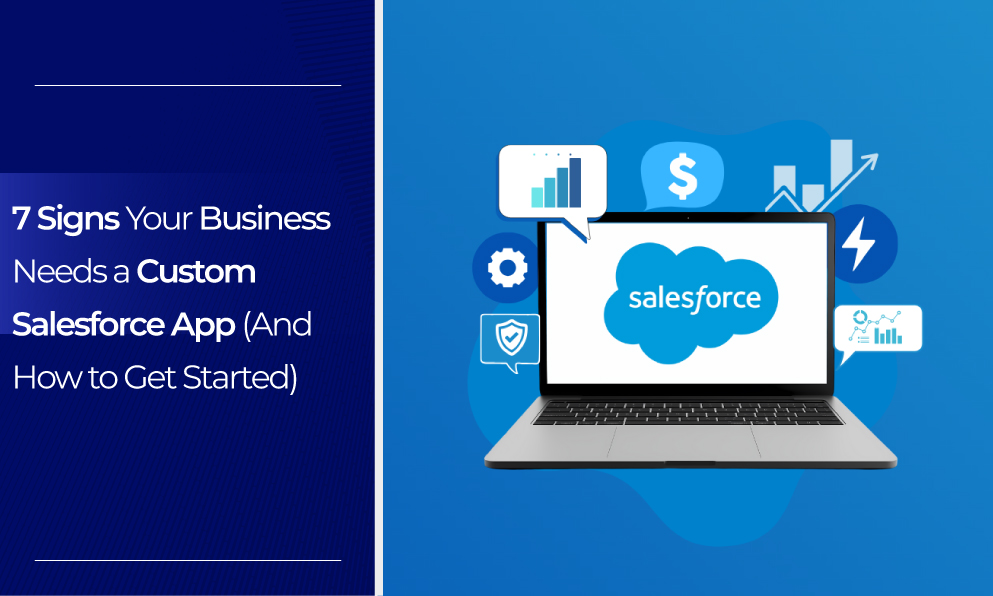Software applications are the backbone of most businesses. They play a pivotal role in streamlining internal operations and delivering customer experiences. However, as technology advances, managing these applications effectively becomes more challenging. This is where application management services (AMS) come into play, ensuring your business's applications remain secure, efficient, and up-to-date.
According to a 2023 report by Gartner, businesses that invest in expert AMS reduce downtime by 40% and achieve 25% faster application deployment cycles. These statistics highlight the growing importance of AMS in driving business success. Let’s explore why expert application management services are indispensable for your business.
What Are Application Management Services (AMS)?
Application management services involve outsourcing software application monitoring, maintenance, and optimisation to specialised providers. These services cover the entire application lifecycle, including:
- Monitoring and Maintenance: Ensuring that applications run smoothly with regular updates and patches.
- Optimization: Enhancing application performance to meet evolving business needs.
- Security Management: Protecting applications from cyber threats through robust security protocols.
- Modernization: Upgrading legacy systems to align with modern technology.
AMS providers employ cutting-edge tools like Dynatrace, Splunk, and AppDynamics to monitor and manage applications in real-time. These tools leverage AI and machine learning to detect anomalies, predict issues, and automate resolutions, ensuring seamless performance.
The Growing Importance of Application Management Services
1. Ensuring Operational Continuity
In a 2024 survey by IDC, 73% of businesses cited application downtime as a significant challenge, costing companies an average of $5,600 per minute. AMS minimises downtime by providing proactive monitoring and issue resolution. For example, BJIT’s AMS team uses AI-driven monitoring tools to predict failures before they occur, ensuring uninterrupted operations.
2. Enhancing Cybersecurity
With the rise in cyberattacks, securing business applications is more critical than ever. A report by Cybersecurity Ventures predicts that cybercrime will cost the world $10.5 trillion annually by 2025. AMS providers implement:
- Regular Security Audits
- Vulnerability Assessments
- Advanced Threat Detection Tools like CrowdStrike and Palo Alto Networks.
These measures protect sensitive data and maintain compliance with regulations like GDPR and HIPAA.
3. Supporting Digital Transformation
Digital transformation initiatives often involve integrating new technologies like cloud computing, IoT, and AI into existing applications. AMS providers facilitate this by:
- Migrating on-premise applications to cloud platforms like AWS, Azure, and Google Cloud.
- Integrating APIs for seamless communication between applications.
- Containerisation tools like Kubernetes and Docker can be used to enhance scalability.
4. Cost Optimization
Managing applications in-house requires significant investments in IT infrastructure and talent. AMS providers offer flexible pricing models, such as pay-as-you-go, reducing costs while ensuring high-quality service.
Key Components of Application Management Services
Application Monitoring
Continuous monitoring ensures applications function optimally. AMS providers use tools like Nagios and New Relic to:
- Monitor application health.
- Identify and resolve performance bottlenecks.
- Generate real-time alerts for anomalies.
Application Maintenance
Regular updates and patches are critical to maintaining application performance and security. AMS providers follow best practices, such as DevOps methodologies, to:
- Deploy updates with minimal disruption.
- Automate repetitive tasks using CI/CD pipelines.
- Ensure compatibility with the latest technology standards.
Application Modernization
Legacy applications often hinder business agility. AMS providers use modernisation techniques, such as:
- Rehosting: Migrating applications to a cloud environment.
- Refactoring: Redesigning the application architecture to improve scalability and performance.
- Replatforming: Upgrading the underlying technology stack.
For example, BJIT helped a manufacturing client modernise its legacy ERP system, which increased operational efficiency by 30%.
How does AMS Drive Innovation?
AI and Automation
AMS providers leverage AI and automation to improve efficiency. Tools like IBM Watson and UiPath enable:
- Predictive maintenance through AI-driven analytics.
- Automated workflows for routine tasks.
- Enhanced decision-making with actionable insights.
Cloud Integration
Cloud-based AMS solutions offer greater flexibility and scalability. By integrating applications with cloud platforms, businesses can:
- Scale resources dynamically.
- Reduce infrastructure costs.
- Enhance collaboration with remote access capabilities.
Data Analytics
AMS providers use data analytics tools like Tableau and Power BI to:
- Monitor application performance metrics.
- Identify trends and patterns.
- Provide actionable insights for continuous improvement.
Benefits of Choosing BJIT’s AMS
BJIT stands out as a leading AMS provider, offering:
- Comprehensive Support: From monitoring to modernisation, BJIT covers all aspects of application management.
- Global Expertise: With clients across the USA, Europe, and Asia, BJIT brings a wealth of industry-specific knowledge.
- Cutting-Edge Tools: BJIT leverages advanced tools like AppDynamics and Kubernetes to deliver exceptional results.
- 24/7 Support: Ensure your applications are always operational with round-the-clock assistance.
Choosing the Right AMS Provider
When selecting an AMS provider, consider the following factors:
- Experience and Expertise: Look for providers with a proven track record in managing applications similar to yours.
- Range of Services: Ensure the provider offers end-to-end services, from monitoring to modernization.
- Security Measures: Verify that robust security protocols are in place.
- Scalability: Choose a provider that can scale services as your business grows.
- Client Testimonials: Review case studies and testimonials to gauge the provider’s reliability.
Conclusion
Investing in expert application management services is not just a tactical move but a strategic imperative in today’s digital age. AMS ensures your applications remain efficient, secure, and aligned with your business goals. By partnering with a trusted provider like BJIT, you can:
- Minimize downtime.
- Enhance cybersecurity.
- Drive digital transformation.
- Reduce costs.
Take the first step towards seamless application management today. Learn more about BJIT’s Application Management Services or contact us for a consultation.











